Diary of a Misanthrope
A journey in the natural world
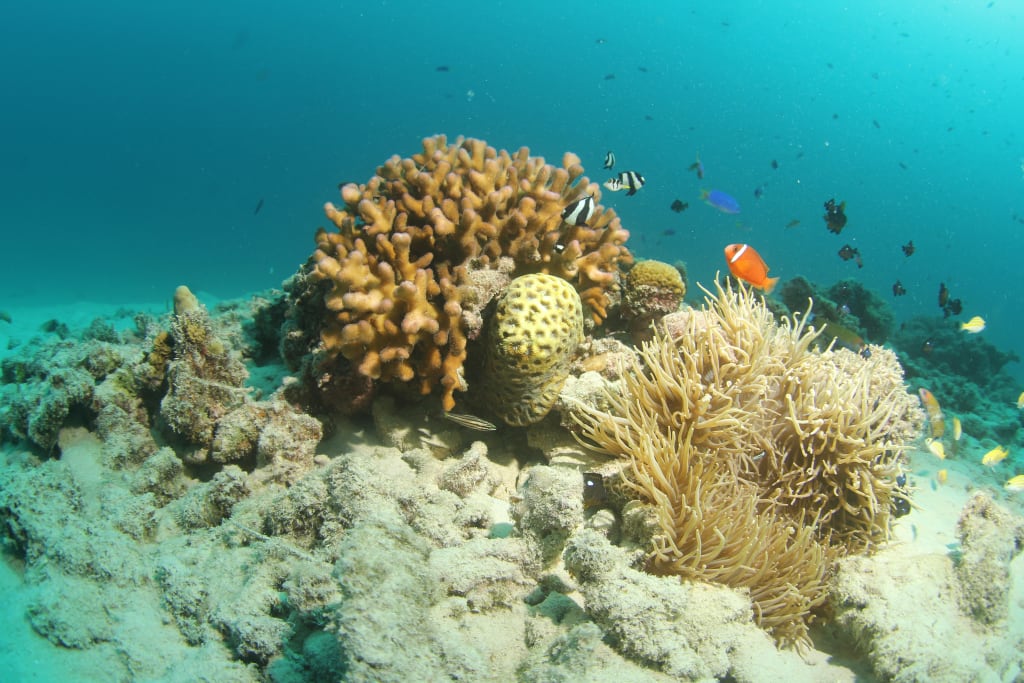
The first time I really questioned my species was underwater. With a nasty cut seeping red blotches into a blue expanse I could feel my heart pumping, my body reacting to all that self-preservation hyped by film, television, and literature. While Homo aquaticus has never been, and isn’t yet a thing, the wilds of underwater have this capacity to make you remember some ancestral sense of vulnerability. It is, after all, not an environment suited to the spongy bags in our chest. But it is a wondrous place, and when afforded the moment to reflect on this, underwater salts the eyes into tears. Tears of both joy and mourning.
I have had many jobs in a profession that has become career, and I love my profession. The jobs, like any, vary. But as is the case with all ups and downs, they grow to a steady wave, and my wave keeps on rolling. There are the climate and ecological crises being faced, and every day I do anything I can towards this struggle.
The same vulnerability I felt underwater at the beginning of all this is what I soon recognised of under the sea itself. An environment completely at the mercy of merciless man. My cut was in fact shallow, and needless to say, no finned beasts lurked nearby. At least none that bothered me. I have since done everything I can to protect those same beasts. I won’t go into the myriad ways in which man reaps the richness of the ocean for the sake of a few coins. I will however say that a lot of it comes down to attitude, and an anthropocentric one at that. I’d had plenty of occasion to feel real disdain towards our species prior to this moment, but the occasion I’m about to describe was when I really began wondering what the point of a human being actually is. What it is we think we’re achieving, and why we do what we do. We are the latest rung on a ladder still growing. Despite the hubris of our believed omnipotence, we have learnt that doings of our own making are often too difficult to reverse. Or too expensive.
This all began for me in Cambodia. A nation known in modern times for a human tragedy of its own. But for my story we start in a place with a pocket by the sea dedicated to excess and indulgence, like so many coastal paradises. A foreign excess and indulgence though. I have never lived in excess or indulgence, but here, I indulged. And the excess seemed conjured out of nowhere, as if it shouldn’t belong, which was entirely true, it shouldn’t have. In a country struggling to regain its sense of identity this excess seemed to mock the suffering that had been inflicted. I was perhaps too naive.
If you know, you know. The place I so often heard called Snooky was a mix of decaying and growing glory that is difficult to describe. What was for certain though was the mix of people that could be found there and their proclivity to the glory they were served up. Travellers like me, some unlike me. People exploring, learning, partaking and dabbling in what the collide of youth and culture expunged.
Enter Simon. Not his real name, but suitable, because what Simon says was rule. On a sunny morning I took a boat trip to an offshore island to have a snorkel and a look around. I had a couple of friends, an acquaintance or two, and the odd stranger on the same rickety boat. Simon was a chatty guy. Nice enough, but domineering. He was English, not that I am using that as a way to magnify those traits thus far described, but he was proper English. The kind of accent that makes you think of everything you have ever assumed about English grandiloquence.
Simon had a grudge. I didn’t understand it at the time, but Simon was very much opposed to the presence of the sea urchin. Those black ones with the long spikes. Think of a big pin cushion, or perhaps a stationary sea mine. On that trip out to sea Simon promptly ordered the local boat captain to take arms with an oar and promptly crush any urchin that he saw. The captain didn’t understand though, and as we passed over a shallow reef Simon proceeded to take the young man’s hand and slap it like a father might, before taking an oar himself to do what he felt must be done. There was a single black, spiky urchin. Just one.
Knowing what I do now, it was a Diadema sea urchin. Species unknown from my memory alone. Diadema have the unfortunate stigma of being bad for coral reefs due to the physical damage they can instil through destructive grazing activities. But they are ecologically important because they consume algae, preventing corals from being smothered as they mow the growth of green that blankets in a warming ocean. Like all species though, abundance is the problem. When there are too many in one place then they can erode whole reefs.
Urchins in Cambodia are the same as urchins anywhere. They have evolved to do a specific task. To fit into their environment and work as part of a whole. The urchin is not malicious. Nor is it ignorant. It is simply doing what it does, feeding and breeding, continuing its kind. So unlike us. But man has interfered with the urchin, with the ocean, with the air and forests and beasts of all types, and when we do the balance is so heavily skewed.
At this point I will mention that I am a conservation biologist. A marine conservation biologist. This means that I look at the biology of an organism to find ways to conserve it and its habitats. My work is predominantly ocean-based, although this extends into coastal regions, but I work in terrestrial areas too. Rather than detail any particular role I have had I am instead trying to convey the sentiment behind it all. Different jobs fulfil different aspects of a profession. Much like an ecosystem, jobs serve different functions for the whole. To go with this metaphor, in my particular ecosystem I still have many more functions to fill. But I began my path in this profession at the sight of a sea urchin being crushed and broken. I said nothing. Simon said. Simon did.
I came home from that trip and got involved with various non-profits who fought to defend the world, talked and learned about the ocean, became vegetarian. I started to see something I had not seen before and very quickly came to dislike my kind. People still liked me. I was no pariah. I was a people person. An extrovert. A lover, an arguer, a carer. But I didn’t like what people seemed to fall for, and why they didn’t ever question it. I was surprised by how someone like Simon could make an assumption and not consider the opposite, until I realised that this is true of us all.
I met someone who supported me, believed in me, and made me believe in myself, who was consistently transformed by the sea, by water, by what it did for her. While I wanted to protect what the ocean was and what it does, she felt its power and wonder and made it a part of her. In some ways my want to defend the marine world now included her love of it too. Something beyond its form and function. When she wasn’t near it there was a piece of her that seemed to shine less brightly. The sea was home. And i discovered there was at least one human I liked.
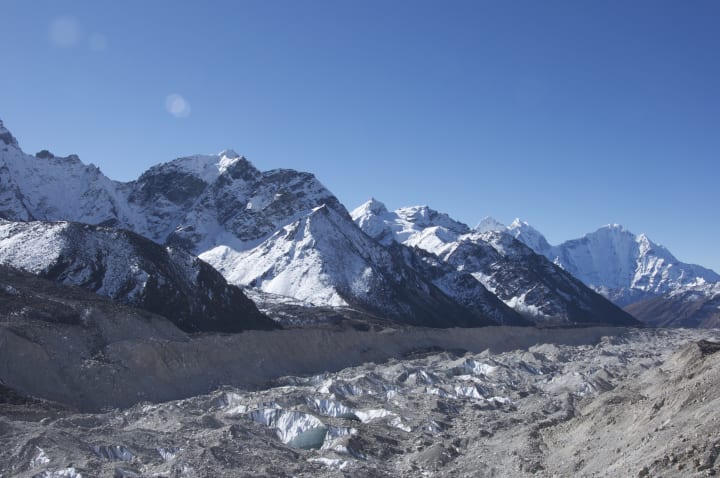
We lived and travelled, and found ourselves in the Himalayas so far from home. One night while she slept in the bunks of a lodge, I had my legs kicked gently over the edge of a glacier, moonlight and stars shining in the thin air like I had never seen. A luminosity that can only be experienced. The one sound I could hear was the bell on the neck of a yak nearby, ringing melodically with each slumbering sway of its head. But there I sat, in the cold, staring out over giants that were once the bottom of the Tethys Sea, a place where so much evolution in the oceans occurred. On my descent from those mountains I immediately signed up for a degree in marine science before we began the trip home again. It was a decision a long time coming. That moment on the glacier was the trigger.
I have since then completed post-graduate studies in conservation biology and held a number of jobs. I have worked as a research assistant, a researcher, a tutor, an educator of early learning, primary, secondary, tertiary, and adult students. I have volunteered abroad, worked for a foreign government, climbed volcanoes, counted corals and fish, surveyed seaweeds, written a newspaper column, extracted DNA, created reports and ID guides, raced across sand islands, rescued sea turtles, and been chased by sharks. My eyes have scoured decades of papers, I have presented to ministries, written policy that cheekily went beyond its scope, and I now earn a living working with schools towards their sustainability goals. In a locked down world this actually allows me to continue making a difference. When I said earlier that jobs vary, well this one varies the most.
However, the thing that people don’t often reveal when describing the merits to their job is how many disappointments they met along the way. I have, like that urchin, been crushed by missed opportunities, rejection letters, or been beaten by a preferred candidate. Hundreds of roles I have applied for I saw myself in. I have a built hundreds of lives based on each one. That someone who supported me all along has continued to do so with each failure, and she does without fail. It is at cost to her own dreams that mine are met. Yet she journeys with me.
But for all these failed chances there are so many things I have done that have helped the oceans, the diversity that this all started with. The impacts I have made in other nations, in communities foreign and local, are differences that have stuck. For the last eighteen months I’ve barely been in the field. When I have, it’s usually to count native trees in a school ground, or to collect and quantify litter as an indication of sustainability. The most notable takeaway I can conclude upon is that we are not a sustainable species. Any organism that finds a way to so greatly exploit its environment can only do so to the detriment of the infinitude of diversity that exists, that is being erased, and that is yet to come. But what I have noticed is that to protect the diversity I longed to save, people are what I have had to engage.
My philosophy for what I do comes down to a single idea. I’m not just trying to conserve what exists. I’m trying to protect what is yet to come. I am trying to conserve evolution in all its processes, its dead ends and roundabouts. When we talk about the rights of a species, I firmly believe chief amongst these is the right to change. To adapt. To be given the time and space to do so. And if I am fair, I have to believe the same of people. While it seems unfathomable that such an adaptation can occur, it is people I have had to believe in, and people, collectively, who have believed in me.
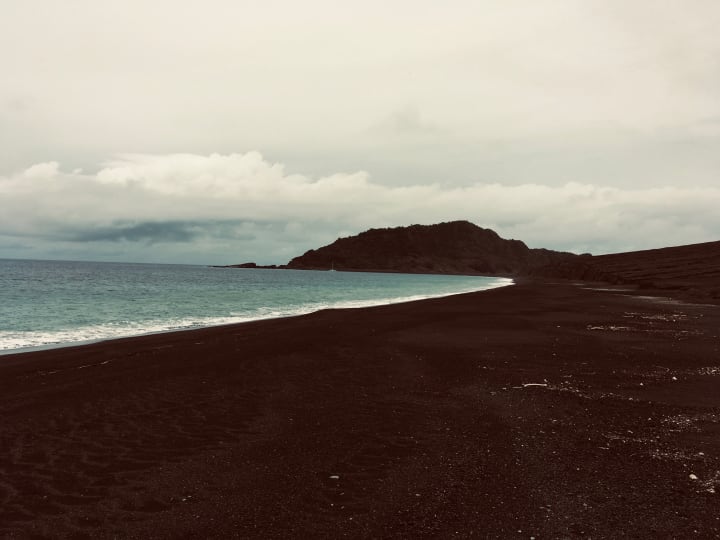
There have been a number of times in nature I have been awed. Working underwater exposes so many interactions, sounds and sights that are unexpected. There is nothing in the natural world I am unimpressed by. Most people are the same. Maybe not to the same degree, but generally nature inspires. Attenborough would have had a hard time in his career if this were not the case. There is a romanticism, a creativity to nature that if tapped into can persuade almost anyone into action. This is the most useful tool in my belt when it comes to conservation. To awe an audience, a government, a business or culture. That is how I have shaped change and encouraged action. How I have made an impact.
Right now, working with schools is the same. Students of any age feel curiosity, are inspired by it, and given the right motivation become the best of advocates for a cause. This is especially true of both the climate and social justice movements where the voice of youth is most devastating. But equally, the adults, the teachers and leaders I work with can be moved into awe as well. Seeing an adult change their opinions, shift behaviour and stand up for something completely new to them is incredible. To inspire an inspirer is the best influence I can have in my fight whether it be a ten year old or a retiree. While I still love working directly with wildlife, with ecosystems and nature, it is in people that I can have the largest impact upon. It is, after all, people who need to act.
I call myself a misanthrope because of my feelings towards mankind. But, perhaps hypocritically, I believe in some of them, I trust some of them, and I see change in many of them. If we are to reconcile what we have done to our oceans and our world we need to no longer be mankind but rather just another piece of the diversity that exists, that is changing, and that still has a way to go. We are another step in evolution, one that others will look back upon with the same adjective we use now. Primitive. I have reached a point realising it is actually all about people. People that exist now. You need to work with people. You need people to work for the world. And most of all, you need people to care.
About the Creator
Jason Sheehan
I am a conservation biologist, but words and creativity have always been my favourite tools. I like to integrate possibility with fiction in what I write. A spark quickly sets fire to my mind.
Many thanks, and please consider sharing.
Enjoyed the story? Support the Creator.
Subscribe for free to receive all their stories in your feed. You could also pledge your support or give them a one-off tip, letting them know you appreciate their work.

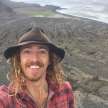

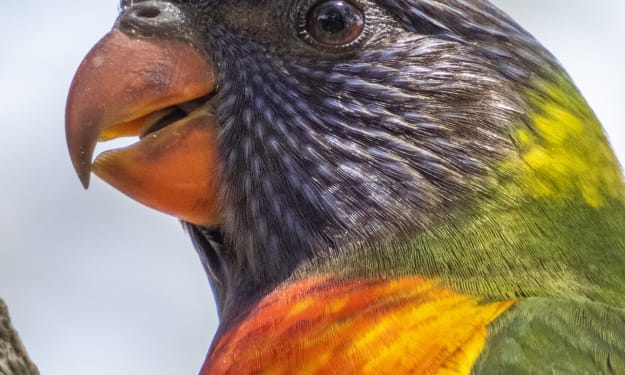



Comments
There are no comments for this story
Be the first to respond and start the conversation.